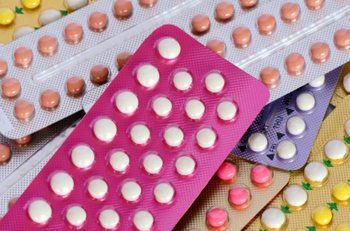New Delhi, Oct 28: Apart from obesity, birth control pills and additional factors such as smoking, high blood pressure or diabetes may put women at increased risk for the most common type of stroke, health experts suggest.
 Oral contraceptives increase the risk of ischemic strokes, caused by a blood clot that blocks or plugs a blood vessel in the brain.
Oral contraceptives increase the risk of ischemic strokes, caused by a blood clot that blocks or plugs a blood vessel in the brain.
"Women who take birth control pills are slightly at higher risk of stroke as a result of the high estradiol content in these contraceptive pills, which also increases the risk of blood clots," Vipul Gupta, Additional Director, Neurointervention Surgery, and Co-Director, Stroke Unit, Artemis Hospital, Gurgaon, said.
"The risk also increases for a woman during pregnancy as the increased blood pressure puts stress on the heart. Also migraine can cause chances of stroke three times up in women," Satnam Singh Chhabra, Head Neuro and Spine Surgeon, Sir Ganga Ram Hospital, added.
Women who smoke are also advised against taking birth control pills as this may increase the risk of a stroke.
Stroke is a serious medical emergency causing premature death and disability. It occurs when blood flow to an area of brain is cut off; brain cells are deprived of oxygen and begin to die.
"A stroke occurs when blood supply to a part of the brain is suddenly cut off. The brain cells in the immediate area begin to die because they stop getting the oxygen and nutrients they need to function," Mr Gupta explained.
Apart from the ischemic stroke, there is the hemorrhagic stroke caused by a blood vessel that bursts and bleeds into the brain.
"Rheumatic heart disease and atrial fibrillation in younger females is emerging as major cause of strokes," MG Pillai, Head of the Cardiology Department at Nanavati Super Speciality Hospital, Mumbai, said.
When brain cells die during a stroke, the abilities controlled by that area of the brain such as memory and muscle control are lost.
The treatment for stroke may also depend on its type. An ischemic stroke in many cases can be reversed through medicines but only if it is detected within three hours of its occurrence. Treating a hemorrhagic stroke involves finding the cause of bleeding in the brain and controlling it.
"Depending on the damage and overall health of a patient, one can regain the lost abilities to some extent through rehabilitation and medicines," Satnam Singh Chhabra explained.
Unlike ischemic strokes, hemorrhagic strokes aren't treated with antiplatelet medicines and blood thinners because these medicines can worsen the bleeding.
Advanced scans, such as CT angiography, perfusion imaging and MRI are also done to evaluate the site of blockage and quantify the extent of the brain that can be salvaged.
Gains can happen quickly or over the time depending on various factors like the area of the affected part, how much is affected and the patient's motivation. The most rapid recovery usually occurs during the first three to four months of a stroke.
"The cure for a stroke depends on the amount of area damaged. If the damage is fatal then it may take months to heal and if the damage is normal, the patient may recover within a week or two," Kishan Raj, Consultant Neurologist at IBS Hospital, Faridabad, explained.
According to experts, 80 per cent of all strokes are preventable. This starts with managing key risk factors, including high blood pressure, smoking, atrial fibrillation and physical inactivity.
Strokes are life-changing events that can affect a person both temporarily or permanently.
After a stroke, successful recovery will often involve specific rehabilitative activities such as speech therapy, physical therapy to help a person re-learn movements and coordination along with occupational therapy to help people improve their ability to carry out routine daily activities.





Comments
Add new comment